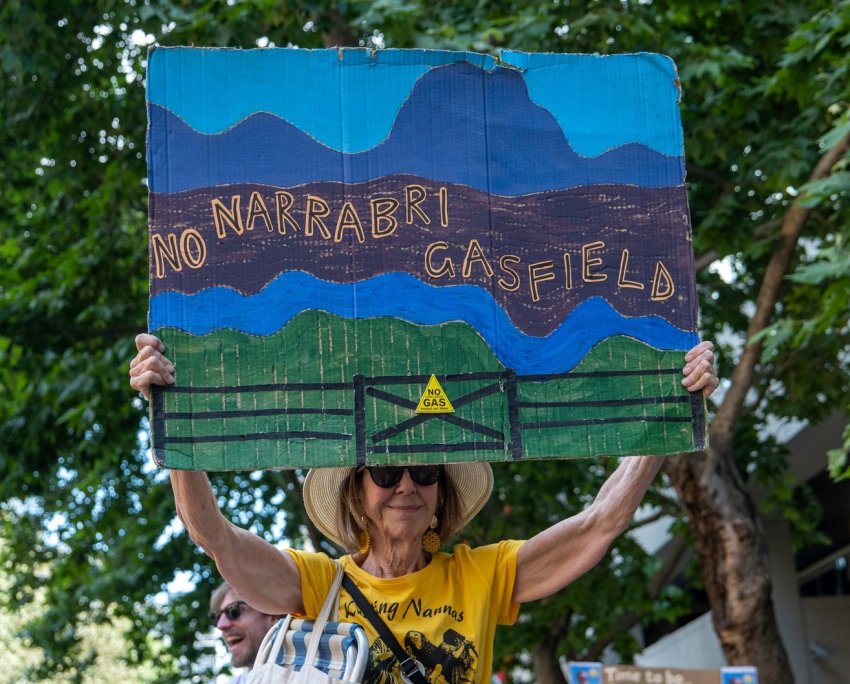
“Fighting Australia’s fossil fuel expansionism”, a November 30 forum organised by Climate Coalition Sydney, heard from four union and environmental activists.
NSW Nurses and Midwives Association vice-president Damien Davis-Frank spoke about a recent union visit to the Pilliga Forest where Santos wants to frack for coal seam gas against the wishes of Gomeroi elders, farmers and the community.
Gomeroi elders hosted the union delegation and Davis-Frank described the cultural connection between them and the Country they have been custodians of for 60,000 years. Delegates witnessed the environmental destruction caused by Santos.
Davis-Frank said the link between the health of Country and health of people is important, and nurses are resolved to ensure this outcome.
Alessandro Moliterno from 350.org said the COP27 conference in Egypt was a disappointment. The sole positive outcome was the setting up of a loss and damage fund to help vulnerable nations that have contributed little to the problem, he said.
He said that while Australia’s contribution to COP27 is an improvement, this is largely because of its previous lack of commitment.
Climate justice activists need to continue pressuring institutions that finance fossil fuel projects, organising politically, and taking legal and direct action, he said.
He suggested that activist organisations pool resources, including people, expertise and tools.
Eurydice Aroney from the New South Wales Knitting Nannas network and Bronte Sprotte, a student and organiser for School Strike for Climate (SS4C) also spoke. Sprotte described SS4C’s international reach and emphasised greater support for the Global South.
Sean O’Shannessy from the North East Forest Alliance described its work preserving native forests which is connected to the campaign to force the government to take real action on climate change.
There was overall agreement that the phase-out of fossil fuels means having an understanding of the interconnectedness of anthropogenic climate damage, justice for First Nations custodians and for workers affected by the necessary transition.
All agreed the upcoming NSW elections provide an opportunity for the climate movement to press these broader social justice concerns home.